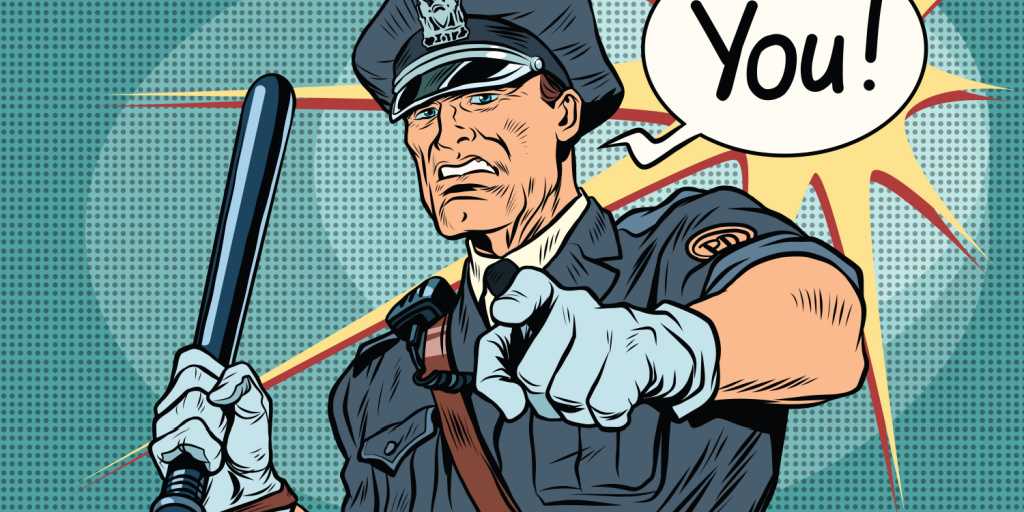Do Police Need a Warrant to Search My Car?
Many times when a person is pulled over by the police in his or her automobile, the police will search the vehicle the person was driving without a warrant, and without permission. Today we will talk about warrantless vehicle searches.
Searches Incident to Arrest: Arizona v. Gant
First, generally, when police arrest the occupant of a car, they may legally search the passenger compartment of the vehicle but only when it is reasonable to believe evidence of the arrest might be found in the vehicle or when the arrestee is “unsecured and within reaching distance of the passenger compartment. But when an arrestee is several feet away from the car warrantless vehicle searches following an arrest violate the Fourth Amendment.
One of the most important cases about searches of a vehicle incident to arrest is Arizona v. Gant, 129 S.Ct. 1710 (2009).
There, Rodney Gant was arrested here in Pima County, Arizona for driving on a suspended license. Id. at 1714. He was locked in the back of a patrol car, handcuffed. Id. Without a warrant, police then searched his car and discovered cocaine in the pocket of a jacket in the back seat. Id.
Because “Gant could not have accessed the car to retrieve weapons or evidence at the time of the Search” the Arizona Supreme Court held that the search-incident to arrest exception to the Fourth Amendment did not apply, and the search could not be justified and was illegal. The U.S. Supreme Court agreed, upholding suppression of the cocaine. In so holding, Justice Stevens reasoned that warrantless searches are generally per se unreasonable under the Four Amendment, subject only to a few exceptions.
Justice Stevens meant that generally the police must obtain a warrant from a judge to search your house, your person, your luggage, or your other property including your car.
The key take-way from Gant for us is that, if the police arrest you, and handcuff you away from your car, they don’t automatically get to search your car at least based on the justification that it’s a “search incident to lawful arrest.” They need a separate justification known as “probable cause.”
Warrantless Vehicle Searches and “Probable Cause”
Second, be aware, that although Gant is helpful, there may be other reasons that the police may be able to search your vehicle without a warrant, and without arrest. This most often happens during traffic stops when the police suspect that there’s drugs in a vehicle.
Most importantly, during a vehicle stop an officer may search a vehicle during a stop if they develop probable cause that the vehicle contains contraband or evidence of criminal activity. But where police have just a “hunch” or a generalized suspicion, that doesn’t amount to probable cause, the search of your vehicle may be illegal. And the evidence could be suppressed.
There’s a lot of useful cases on this and I’ll cite you to a few of them to you: See, e.g., U.S. v. Ramirez-Rivera, 800 F.3d 1, 28 (1st Cir. 2015) (warrantless automobile search invalid because informant’s uncorroborated tip did not establish probable cause; U.S. v. Patiutka, 804 F.3d 684, 690-91 (4th Cir. 2015) (warrantless automobile search invalid because discovering credit card reader and 4 iPads did not establish probable cause of identity theft); Mack v. City of Abilene, 461 F.3d 547, 553 (5th Cir. 2006) (warrantless automobile search invalid because uncorroborated tip of contraband in defendant’s vehicle and apartment did not establish probable cause); Taylor v. City of Saginaw, 922 F.3d 328, 334 (6th Cir. 2019) (warrantless automobile search invalid because presence of legally parked vehicle did not establish probable cause that vehicle was threat to public safety); U.S. v. Kennedy, 427 F.3d 1136, 1141-42 (8th Cir. 2005) (warrantless automobile search invalid because tip that defendant previously hid drugs in vehicle did not establish probable cause); U.S. v. Saulsberry, 878 F.3d 946, 952-53 (10th Cir. 2017) (warrantless automobile search invalid because possession of many credit cards and nervous behavior did not establish probable cause); U.S. v. Spinner, 475 F.3d 356, 359 (D.C. Cir. 2007) (warrantless automobile search invalid because nervousness did not establish probable cause that defendant was armed).
In each one of these cases the US Courts of Appeal said, no, police did not have enough probable cause to search a vehicle without a warrant.
Consent
Third, another reason that the police may search your vehicle, even without probable cause, and even without an arrest is, if you consent to the search. This may sound simplistic, but police will often ask for and extract consent to search a vehicle on a traffic stop from a nervous driver. They may say things to you like “Mind if I take a look in your vehicle.” It’s a very coercive environment, a traffic stop on the roadside, and people may think that by “cooperating” and agreeing with police requests, they might be better off.
But remember that by consenting to a search of your vehicle, much less the contents or “containers” within your vehicle, you are giving up an important constitutional right.
Conclusion
Remember, that even without a warrant (1) police can search your vehicle pursuant to a valid arrest, but only to a limited extent; (2) police can search your vehicle even without an arrest only if the have probable cause your vehicle contains contraband or evidence of crime; (3) and they can search your vehicle if you “consent.”
All of this can be important anytime police search your vehicle.
Recommended Articles

Arizona’s new sealing statute is a powerful way for people who have been charged or convicted of many common offenses, to be able to say “no” in many instances.

In Arizona, “Aggravated Assault” charged under ARS § 13-1204 is a Class Four Felony, and in some cases with mandatory prison.

DUI or domestic violence police misconduct even if not resulting in grievous misfortune can sometimes provide a helpful remedy for the criminally accused.

people are surprised by how outsized the consequences some misdemeanor convictions can be. collateral consequences—meaning all those hidden consequences.

For thirty years two federal laws prohibited all those convicted of misdemeanor domestic violence offenses from ever possessing firearms.

About Michael Harwin
Michael’s skill and experience have been recognized repeatedly. He holds an A-V 5/5 preeminent rating by Martindale Hubbell. He has been named one of the top lawyers in Arizona by Southwest Superlawyers, and one of the best lawyers in Tucson by Tucson Lifestyle Magazine. He also has been named one of the best lawyers in the United States by BestofUS.com , and given the highest rating possible by AVVO, 10/10 Superb. Amazon Books



